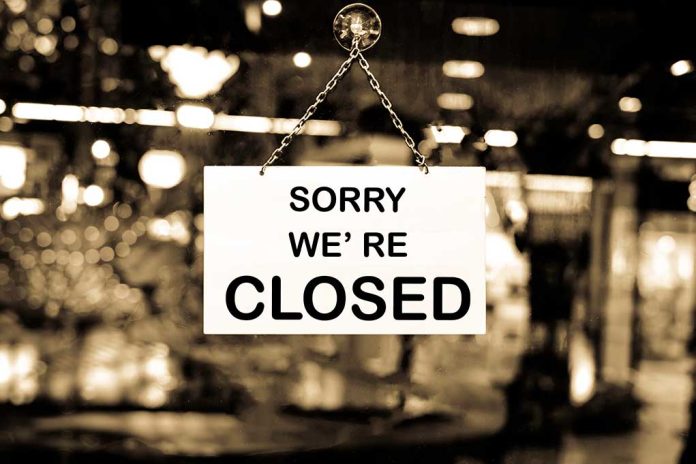
TGI Fridays, once a beloved casual dining icon, now faces potential bankruptcy as it struggles to adapt to changing consumer tastes and mounting financial pressures.
At a Glance
- TGI Fridays has closed dozens of restaurants in the US and UK, resulting in over 1,000 job losses
- The company is preparing to file for Chapter 11 bankruptcy protection
- Systemwide sales fell 15% last year, with the chain closing half of its U.S. restaurants over the past decade
- TGI Fridays is seeking new financing to support operations during the bankruptcy process
- The chain’s struggles reflect broader challenges in the casual dining sector
The Fall of an American Icon
TGI Fridays, founded in 1965 in New York City, has long been a staple of American casual dining. However, the chain now finds itself on the brink of collapse, with mass closures and job losses plaguing both its U.S. and UK operations. In a stark illustration of its decline, TGI Fridays has shuttered half of its U.S. restaurants over the past decade, with at least a dozen more closures in the past month alone.
The company’s parent, Hostmore, recently filed for administration in the UK due to unmanageable debt, resulting in the closure of 35 restaurants and the loss of over 1,000 jobs. While a rescue deal saved 51 sites and nearly 2,400 jobs, the chain’s reputation has been severely damaged by its poor handling of the situation.
From US securitization issues to 36 store closures and 1,000 job losses in the UK, TGI Fridays is battling financial storms on both sides of the Atlantic. https://t.co/QJqVVNXocr
— Kat B (@dedkatbouns) October 19, 2024
Financial Turmoil and Bankruptcy Preparations
As TGI Fridays grapples with its financial woes, the company is now preparing to file for bankruptcy protection. This drastic measure comes as the chain struggles to cope with tightening consumer budgets and a shift towards faster food options. The company is currently in talks with lenders to secure financing that would allow it to continue operating during the Chapter 11 process.
The chain’s financial troubles have been exacerbated by a series of setbacks, including the termination of its role as manager of its whole business securitization due to an overpayment issue. This led to operational changes and contributed to the collapse of a proposed acquisition by UK franchisee Hostmore PLC.
The Human Cost of Corporate Failure
Behind the financial figures and corporate maneuvering lies a stark human toll. Thousands of employees have found themselves suddenly out of work, often with little to no notice. The abrupt nature of these job losses has drawn sharp criticism from labor unions and workers’ rights advocates.
This callous treatment of workers is a stark reminder of the human cost of corporate mismanagement and the failures of unfettered capitalism. While executives and shareholders may be insulated from the immediate consequences of their decisions, it is the hardworking employees who bear the brunt of these failures.
A Symptom of Broader Economic Challenges
TGI Fridays’ struggles are not occurring in isolation. The chain’s decline is emblematic of broader challenges facing the casual dining sector and the economy as a whole. Rising costs, changing consumer preferences, and the lingering effects of pandemic-era disruptions have created a perfect storm for many established restaurant chains.
As we witness the potential demise of yet another American dining institution, it’s clear that the economic landscape is shifting dramatically. The question remains: how many more beloved brands will fall before policymakers take meaningful action to address the root causes of these economic pressures?

















